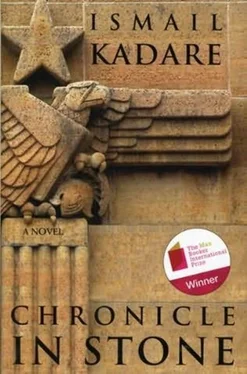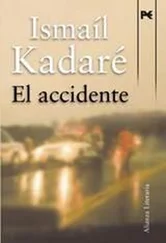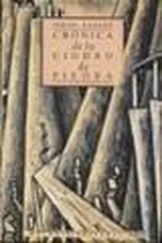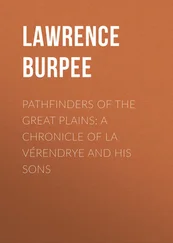Ismaíl Kadaré - Chronicle in Stone
Здесь есть возможность читать онлайн «Ismaíl Kadaré - Chronicle in Stone» весь текст электронной книги совершенно бесплатно (целиком полную версию без сокращений). В некоторых случаях можно слушать аудио, скачать через торрент в формате fb2 и присутствует краткое содержание. Жанр: Современная проза, на английском языке. Описание произведения, (предисловие) а так же отзывы посетителей доступны на портале библиотеки ЛибКат.
- Название:Chronicle in Stone
- Автор:
- Жанр:
- Год:неизвестен
- ISBN:нет данных
- Рейтинг книги:4 / 5. Голосов: 1
-
Избранное:Добавить в избранное
- Отзывы:
-
Ваша оценка:
- 80
- 1
- 2
- 3
- 4
- 5
Chronicle in Stone: краткое содержание, описание и аннотация
Предлагаем к чтению аннотацию, описание, краткое содержание или предисловие (зависит от того, что написал сам автор книги «Chronicle in Stone»). Если вы не нашли необходимую информацию о книге — напишите в комментариях, мы постараемся отыскать её.
Chronicle in Stone — читать онлайн бесплатно полную книгу (весь текст) целиком
Ниже представлен текст книги, разбитый по страницам. Система сохранения места последней прочитанной страницы, позволяет с удобством читать онлайн бесплатно книгу «Chronicle in Stone», без необходимости каждый раз заново искать на чём Вы остановились. Поставьте закладку, и сможете в любой момент перейти на страницу, на которой закончили чтение.
Интервал:
Закладка:
“When they first told me,” Xhexho said, “I couldn’t believe my ears. I got up, threw a scarf on my head, and went to see Mane Voco. The poor man was taking it bravely, but the women of the house looked stunned, as if they’d been turned to stone. I wanted to ask them what was going on but I just couldn’t. How can you speak of something like that? Well, who should walk in at that very moment? Isa, his glasses flashing! ‘How are you? How’s everything?’ he says to me, just like that. Well, I wanted the ground to swallow me up. There was a lump in my throat. How I kept from bursting into tears, I’m sure I don’t know. He walked over to the cabinet, flipped through a few books, then went over to the window, stopped, and took off his glasses. Then he started rubbing his eyes. His mother and sisters stared at him, their lips trembling. I reached out, picked up the glasses, and put them on. What can I tell you, my friends? My head was spinning. These glasses must be cursed. The world whirled like the circles of hell. Everything shook, rolled and swayed as if possessed by the devil. I took them off in a hurry, and got up and ran out like a madwoman.”
Xhexho took a deep breath. Grandmother turned her coffee cup upside down to read the grains.
“Why did Isa do it?” she said sadly. “Such a quiet, intelligent boy. With a lout like Lame Kareco Spiri, I could understand it, but Isa…”
“The end of the world,” said Kako Pino.
“That’s the way it is, Selfixhe,” Xhexho went on. “We complain about all the evils that befall us, but we have only ourselves to blame. Yesterday they built a house of cardboard, today the boys wear glasses, and tomorrow, who can say? But the Almighty above,” and here Xhexho pointed a finger at the ceiling and her tone became menacing, “sees all and records all. He’ll make us pay.”
“The end of the world,” said Kako Pino again.
When Xhexho mentioned the cardboard house, I instinctively turned towards the Gjobek district, where the strange breeze-block construction, put up a few weeks ago by the Italians for their nuns, now stood – an alien structure quite incompatible with the sober stone houses all around it. This unusual building bothered people for a long time. We’ve never seen anything like this, said old women who knew the ways of the world and had even been to Turkey. Old as we are, we have never heard of a cardboard house before. It’s the devil’s work, for sure.
They now judged Mane Voco’s son in more or less the same terms as they had applied to the breeze-block house. “Why, dreadful boy, do you want to see the world except as it is? Why do you rebel?”
They discussed the matter endlessly, and I listened carefully, because what Mane Voco’s son had done had something to do with a secret of mine. I too had put one of those accursed lenses to my eye more than once. I had found it in Grandmother’s old chest, and playing with it one day I happened to raise it to one eye. I was astonished. Suddenly the world around me fell into place. The edges of things suddenly got sharper and brighter. I sat for a long time holding the lens over one eye and closing the other, looking out at the wide view from our house. It was amazing, as if an invisible hand had wiped clean a misted window that had covered the world, revealing it as something new and bright. Despite that, I didn’t like it. I was used to looking at the world through a cloud of haze, so that the edges of things ran together and separated freely, not according to any fixed rules. No one, I reckoned, asked the roofs, streets or telegraph poles to account for slight shifts from their starting positions. But through that round glass the world looked stiff, measured and mean, granting objects no more qualities than those they already had. It was like a house where everything – oil, flour, even water – was measured to the last drop and nothing was ever left over or accidentally spilled.
All the same, the lens came in very handy at the movies. Before I went I would wash it and put it in my pocket. When the lights went out I would take it out, close my left eye, and put it over my right. When I got home no one could understand why one of my eyes was a little red. One night, two gypsy kids I’d taken with me to see the film got very curious when I took out the lens. During the film I heard them whispering to each other “D’you reckon he be a spy?”
“The end of the world,” Kako Pino said again.
But they soon went back to their usual boring conversation about the cost of living. I wasn’t interested, so I started wondering again why people see with their eyes and not with their fingers, cheeks or some other part of the body. Eyes, after all, were only pieces of flesh from our bodies. How does the world manage to get in through an eye? Why don’t people blow up from the great mass of light, space and colour that constantly pours into them through their eyes? I had racked my brains for a long time over the enigma of sight. I was obsessed by the mystery of blindness, which I feared more than anything else. This fear may have come from the fact that most of the curses I used to hear had to do with eyes. Once our toilet was blocked, and the dark hole of the drain looked to me like a blind eye. That must be how eyes get stopped up, I said to myself. The flow of light, with all those sights dissolved in it, can’t get through the eye sockets, and that must be what blindness is. Vehip Qorri, the town poet, must have just that kind of liquid blackness in his eye sockets.
Sight. What an inexplicable thing! I turn my head towards the lower sections of the city and my eyes, like two great pumps, start sucking in the light with all those images of roofs, chimneys, a few lone fig trees, streets, passers-by. Can they feel me sucking them in? I close my eyes. The flow stops. I open them. It starts again.
After the stormy night, the roofs seemed to have come unusually close to one another. They were soaking wet. The stone slates formed an infuriatingly monotonous expanse as far as I could see. The light glanced off them, casually. Down below, streets and alleys twisted and turned, with only a handful of people to be seen on them: a few peasants on horseback, a priest, old women dressed in black, out visiting.
Varosh Street crept painfully uphill alongside the gullies, while on its right Gjobek Street plunged down steeply, skirting the Italian nuns’ cardboard house as if it were plague-stricken, and then crashed into Varosh Street, a collision from which both streets emerged crooked. Further on, Fools’ Alley, blind and obstinate, lurched towards genteel Gymnasium Street, which dodged it at the last minute with a clever twist. Then Fools’ Alley, as if looking for trouble with other streets, tumbled around the district with sudden, sharp turns.
I was watching out for Ilir, my best friend, Mane Voco’s younger son, to come round the corner. When I saw him I ran downstairs and into the street.
“Let’s go over to the slaughterhouse,” he said. “We’ve never done that before.”
“The slaughterhouse? What for?”
“What do you mean, what for? To watch. To see how they kill the cows and sheep.”
“What’s to see at the slaughterhouse? We’ve seen the butcher shops. Carcasses hanging on hooks, some with their legs up, some with them down.”
“Butchers’ shops are one thing,” Ilir said, “but slaughtering is another. There are no tiresome customers haggling over the price of meat. You can even see them kill bulls. All they do there is kill animals.”
“Slaughter” was one of the words being bandied about more and more often, but its meaning still seemed rather vague.
“Last week,” Ilir went on, “a bull escaped from the meat-packers and ran wild. They all chased after him and hit him with anything they could get their hands on until finally he fell off the steps and broke his back. A lot of grown-ups go just to watch.”
Читать дальшеИнтервал:
Закладка:
Похожие книги на «Chronicle in Stone»
Представляем Вашему вниманию похожие книги на «Chronicle in Stone» списком для выбора. Мы отобрали схожую по названию и смыслу литературу в надежде предоставить читателям больше вариантов отыскать новые, интересные, ещё непрочитанные произведения.
Обсуждение, отзывы о книге «Chronicle in Stone» и просто собственные мнения читателей. Оставьте ваши комментарии, напишите, что Вы думаете о произведении, его смысле или главных героях. Укажите что конкретно понравилось, а что нет, и почему Вы так считаете.












